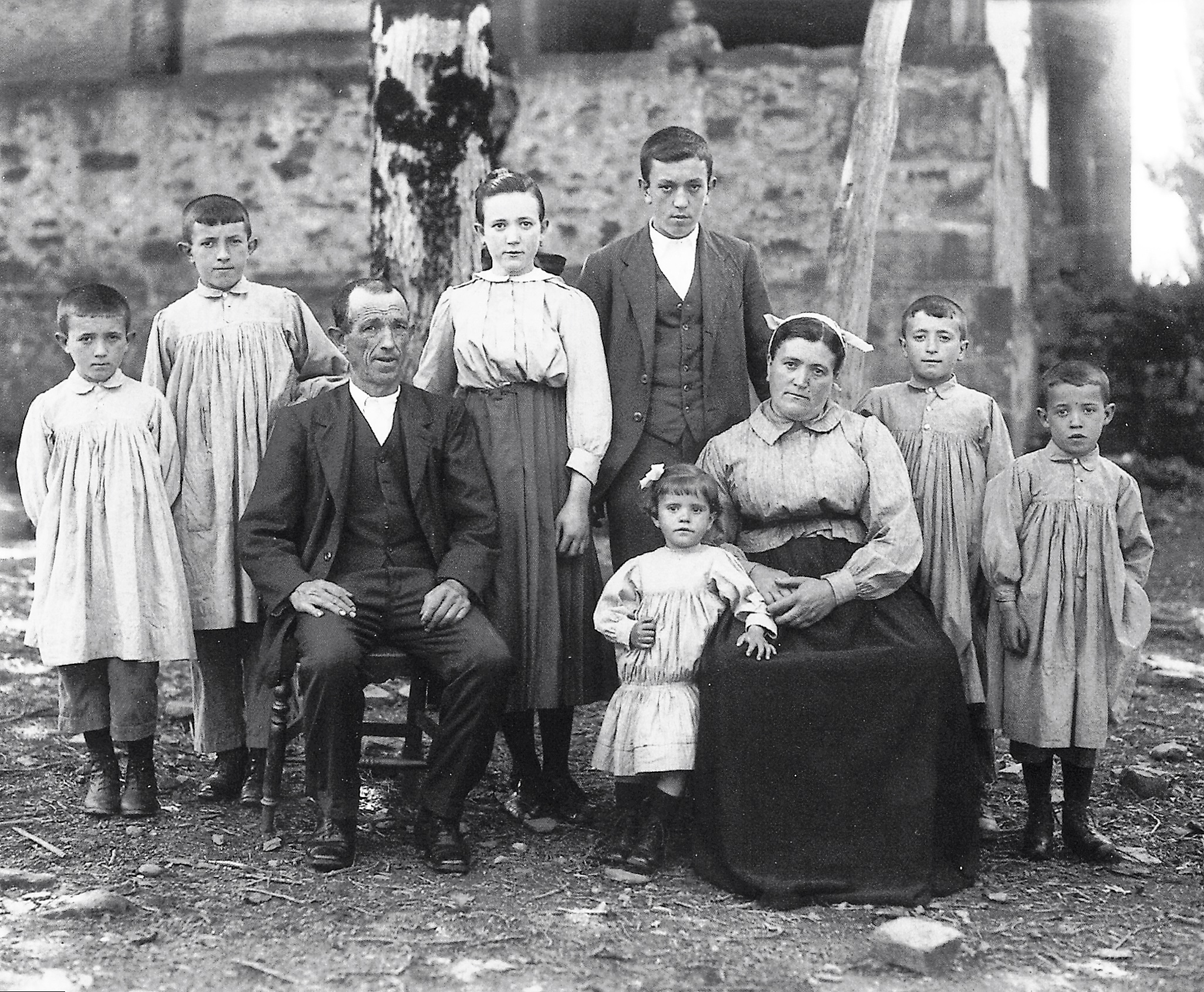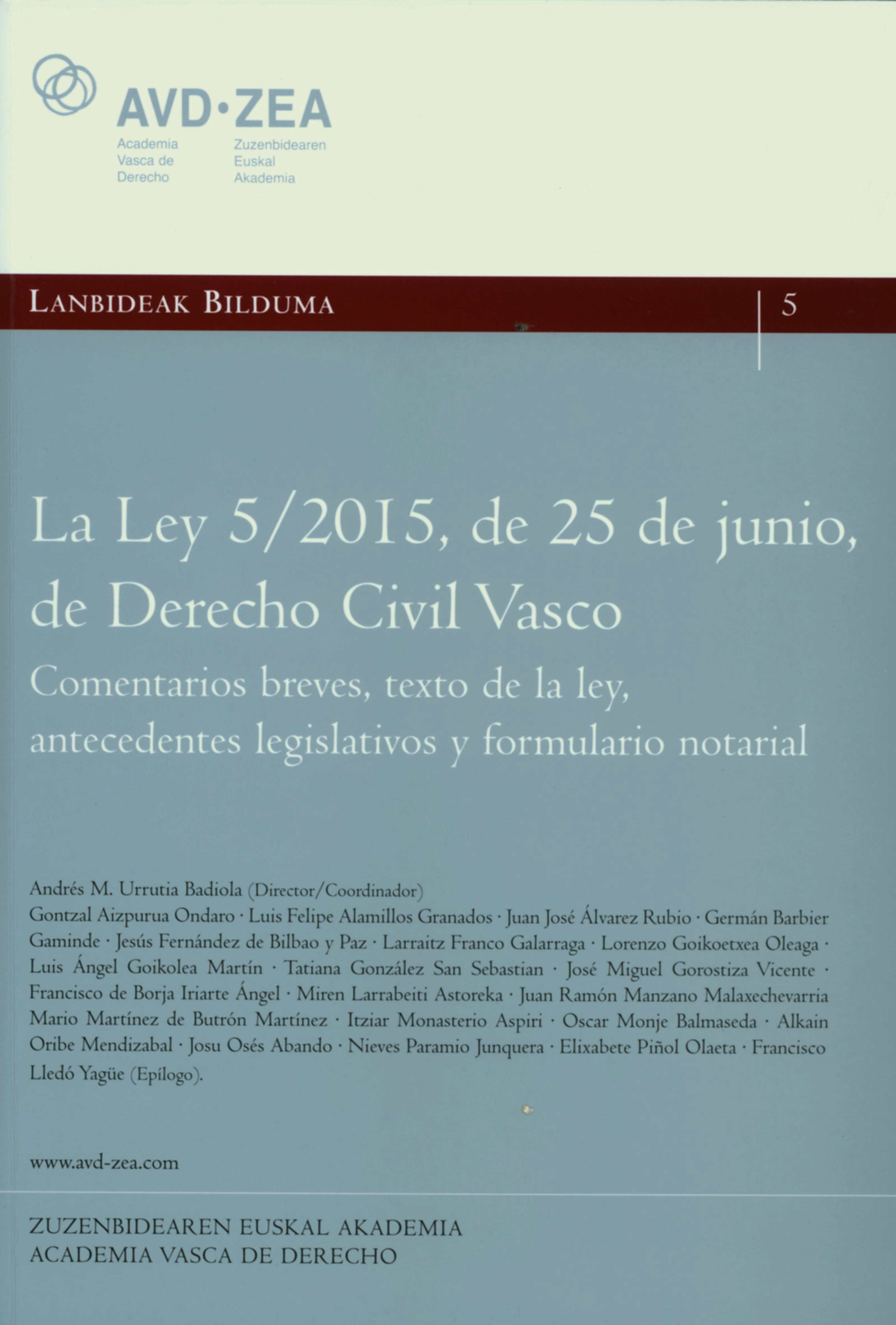Basque ethnography at a glance

The heir of a family, or etxegaia, in Zeanuri (Bizkaia), c.1920. Felipe Manterola Collection. Labayru Fundazioa Photographic Archive.
In former times it was customary for the parents of intending spouses to establish agreements or covenants with the intervention of the bride and groom stating the conditions of the marriage. The prenuptial contract or public deed by which the marital agreements were formalised was known in Basque as ezkontzako kontratua. In the rural world such agreements would benefit the son or daughter appointed to take ownership and responsibility for the family house. The other party would bring the dowry into the marriage.
Although their differences have softened over time, two contrasting legal frameworks have coexisted in Bizkaia until recently. Charter Law affected civil parishes or anteiglesias, which enjoyed considerable autonomy from the higher administrative authorities and whose territories were referred to as Tierra Llana (literally, ‘Plain Land’), whereas cities were governed by Spanish Common Law. In Plain Land there was freedom of testation, being usually the chosen son or daughter (etxerakoa, in Basque) the beneficiary of the house and land. However, the estate was divided into three portions by the rule of Common Law: 1/3 shared equally by the forced heirs, 1/3 of the improvements to be divided up at will among the forced heirs, and 1/3 fell within the right of free disposal.
The Basque Civil Law of 1992 modified and unified some of the previous regulations and expanded them to the whole of the Basque Autonomous Community. The implementation of the more recent 2015 provisions represented a major step, particularly with regard to inheritance law, extending jurisdiction to the entire territory.
 In principle, and pursuant to the Civil Code, after two years of residence in Basque territory, a Spanish national is granted permanent residency and can enjoy the succession regime distinct to this autonomous community. Nevertheless, Plain Land in Bizkaia retains two interesting historical rights: the Trunk Lineage Statute and the Universal Community Marriage Property Regime. The trunk lineage rule enables trunk relatives, within a certain degree of consanguinity, to exercise the emption rights, which are rights of preferential acquisition applicable to sales of trunk lineage statutory assets to third parties, so that the patrimony remains in the family. Where there are lineal descendants and under the community property, the marital estate is owned jointly by both spouses unless other patrimonial regime is agreed.
In principle, and pursuant to the Civil Code, after two years of residence in Basque territory, a Spanish national is granted permanent residency and can enjoy the succession regime distinct to this autonomous community. Nevertheless, Plain Land in Bizkaia retains two interesting historical rights: the Trunk Lineage Statute and the Universal Community Marriage Property Regime. The trunk lineage rule enables trunk relatives, within a certain degree of consanguinity, to exercise the emption rights, which are rights of preferential acquisition applicable to sales of trunk lineage statutory assets to third parties, so that the patrimony remains in the family. Where there are lineal descendants and under the community property, the marital estate is owned jointly by both spouses unless other patrimonial regime is agreed.
Reciprocal testation or alkarpoderoso (literally, ‘full power to each other’) entitles the surviving spouse to dispose of the assets acquired during marriage as he or she sees fit and has extended to all of the Basque Country. The forced succession regulation has been amended in the New Basque Civil Law and the portion reduced from 4/5 to 1/3. Additionally, the rights of the widowed spouse have been reinforced, and he or she takes priority over ascendants in the case of intestate succession.
The reciprocal will of spouses is a remarkable institution that even allows the surviving partner to decide whether trunk lineage assets should remain with the trunk family. The universal community property system, for its part, requires the involvement of both husband and wife alike in any act of disposition. The husband legally needs his wife’s signature, hence the long-standing special status of women in Bizkaia compared to areas covered by other legislations.
Segundo Oar-Arteta – Etniker Bizkaia – Etniker Euskalerria Groups
Translated by Jaione Bilbao – Language Department – Labayru Fundazioa
References for further information: Rites from Birth to Marriage and House and Family, both part of the Ethnographic Atlas of the Basque Country collection.

